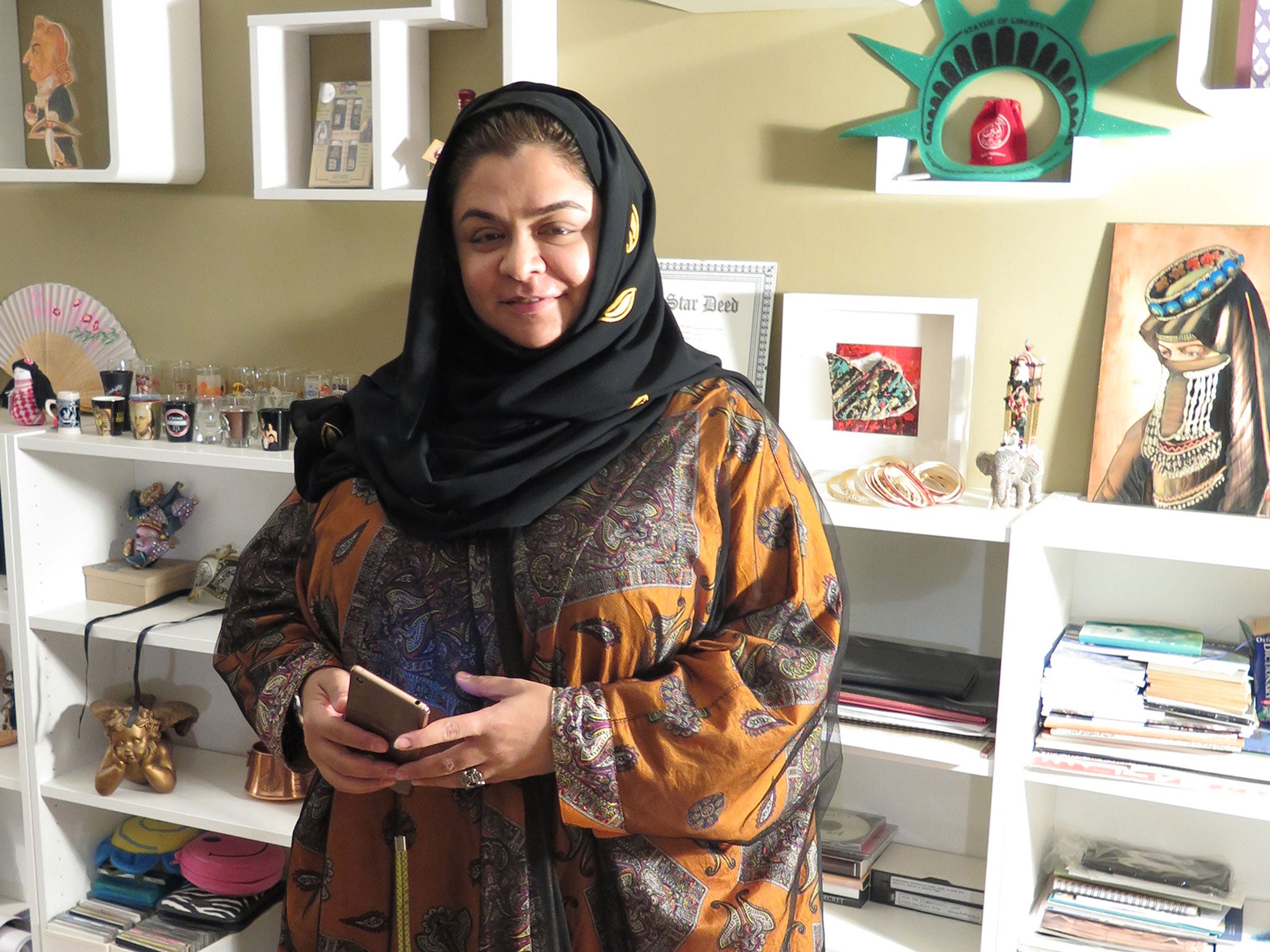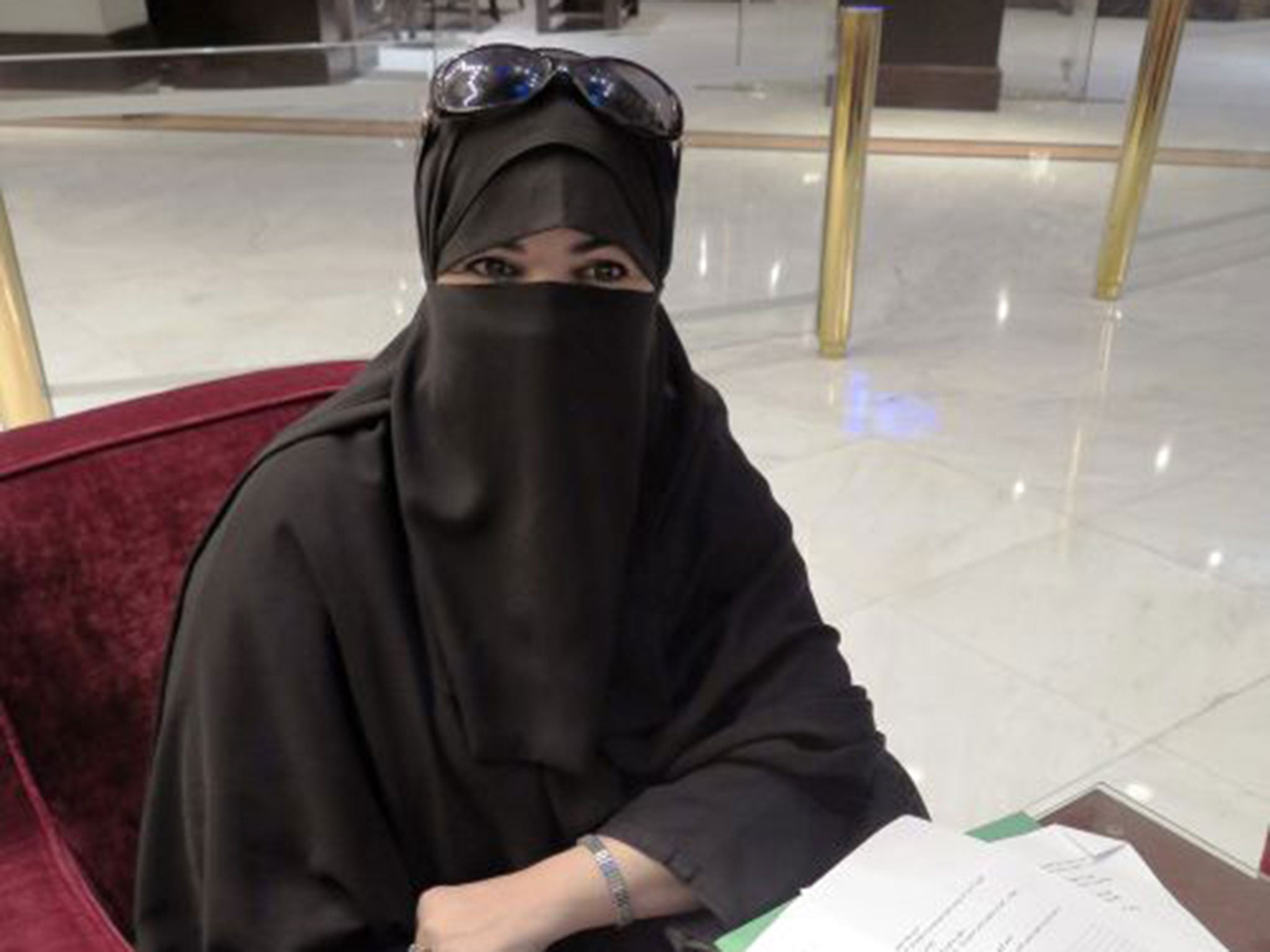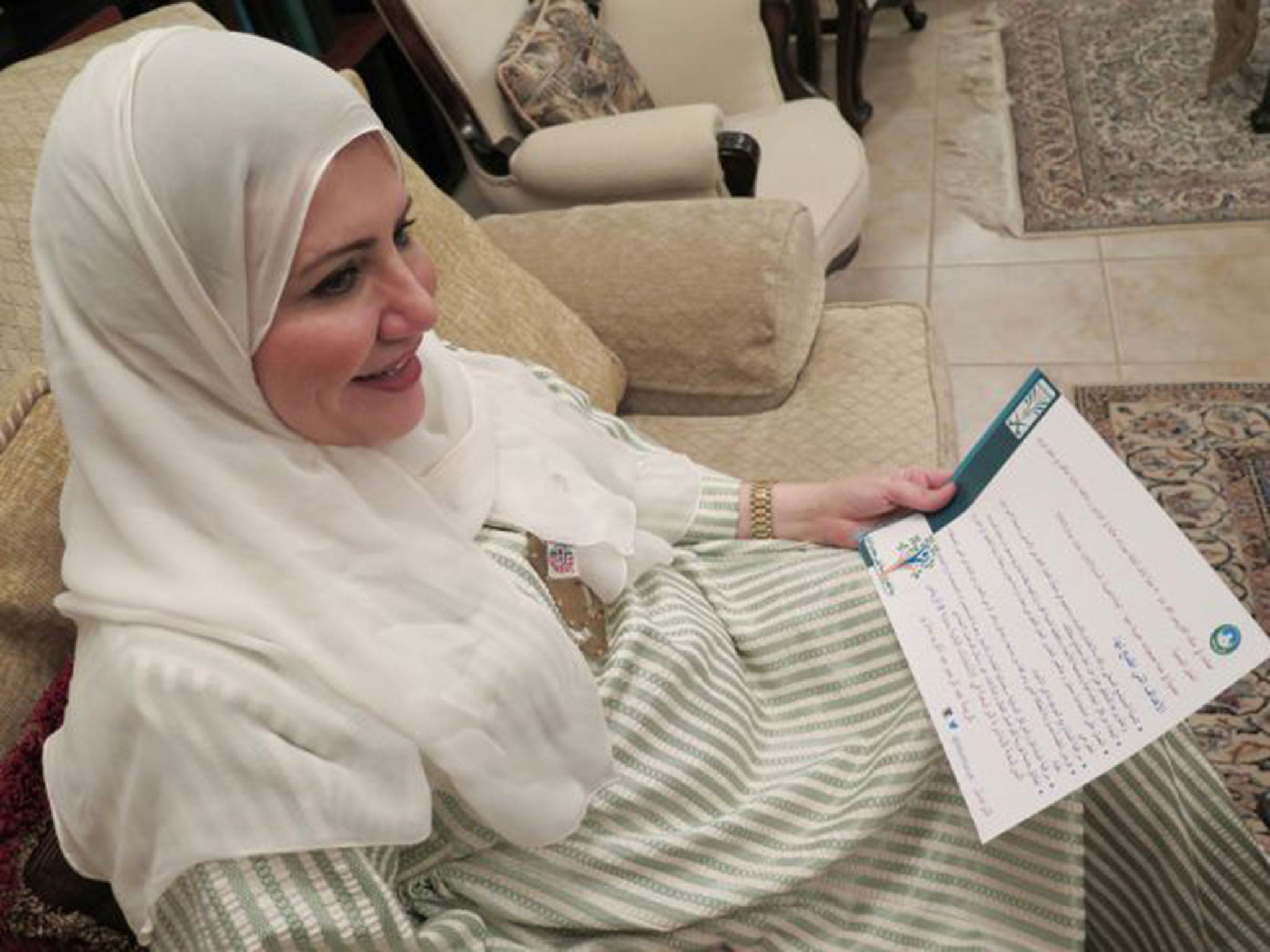Saudi Arabia elections: Meeting the first women legally allowed to stand
The kingdom is preparing for its first election in which women are allowed to stand, and vote. Brian Murphy meets the candidates in Riyadh – and asks whether this a real breakthrough or just an attempt to fob off the forces of change

One candidate wants more recycling. A rival envisions community centres with day care. “How about creating Western-style public libraries?” asks another.
They are hardly the rallying cries of revolutionaries. But, in the ultra-conservative context of Saudi Arabia, such appeals are breaking new ground: they are coming from some of the more than 900 female candidates in the kingdom’s first nationwide election in which women are able to stand – and vote.
The balloting, beginning tomorrow, for municipal council seats across the kingdom, from Riyadh’s chaotic sprawl to oil-rich outposts, marks a cautious step forward in a nation where social change does not come easy. It must always pass muster through a ruling system that may be Western-allied but still answers to a religious establishment very wary of bold moves, particularly regarding the role of women.
Women still cannot drive. They must receive a male guardian’s permission to travel abroad alone, and face other daily reminders of Saudi Arabia’s strict brand of Islam and the state’s punishing stance against any open dissent. “Saudi Arabia has done a great PR job in selling these elections as part of much-touted reforms,” said Ali al-Ahmed, director of the Institute for Gulf Affairs. “The reality is that not much changes.”
Yet to dismiss the elections as mere window dressing also fails to grasp the moment. True, the municipal councils have limited powers – much more about, say, traffic lights and pavements than bigger issues. Still, opening even this one path for women’s political engagement redefines Saudi citizenship at a time of huge challenges, including the Saudi-led war against rebels in Yemen and slumping oil prices that have thinned the nation’s lifeblood.

“Someone has to pave the way,” said Karema Bokhary, a 50-year-old science teacher who has two daughters of voting age: a 20-year-old studying law and an 18-year-old in medicine. “I’m doing this for my daughters. They are witnessing a new way to be a Saudi woman. It says: ‘Stand up; make your voice heard’.”
This is also an indirect message for Saudi’s King Salman, who inherited the reforms when he took power nearly a year ago. His late brother, King Abdullah, brought a series of small but significant social shifts for women, including setting the election rules in motion years ago. The 150-seat Shura Council, an appointed advisory body, now includes 30 women. He opened the country’s first mixed-gender university.
But there are lines that cannot be crossed – and are guarded by the powerful Islamic clerics who give the House of Saud legitimacy to rule. At least two women activists – including a human rights campaigner – were among the dozens of candidates banned from the ballots. All told, women account for about one in seven of the nearly 7,000 hopefuls seeking about 3,100 council seats. An even smaller percentage of women are registered to cast ballots: 130,637 women, compared with 1.35 million men, election officials said.
Even so, some hardliners are appalled. “Men only!” cried a conservative imam, Abdulaziz Alfawzan, in a video posted online that includes warnings that the election is another step to import Western values. Ms Bokhary, however, said she was braced for significantly more pushback. “We expected more men to try to stand in our way,” she said. “A few have grumbled. But the worst didn’t happen. That says something.”
Instead, she held a few women-only forums and recruited some former students to keep her Twitter and Facebook pages fresh. Ms Bokhary also put together a simple campaign flyer outlining her standout issue: seeking corporate sponsors for neighbourhood community centres for women, which would include day care and gyms.
“But really I’m trying to tell women not to sit back,” she said. “Get involved. Move your butts. Do something.”

Around the corner in central Riyadh, a rival plots her last-minute push in the crowded District 4 field: more than 50 candidates, about half women, for two seats. Architecture professor Haifa Alhababi roams the streets and posts Snapchat images of what irritates her. That could be rubbish bins full of recyclable items in a city with no serious recycling effort. Or maybe the poor road planning that contributes to Riyadh’s round-the-clock traffic jams.
“Even if I don’t win the election, I still win,” she said, sitting in a room that includes her collection of shot glasses from around the world: the Hard Rock Café in Seattle, the Bellagio casino in Las Vegas, Germany, Rome.
“The reason is that I will annoy whomever wins to think about better urban planning,” said Alhababi, 37, who studied in Britain and was raised for several years in Austin, Texas. “This is just the beginning. Mark my words.”
The college-age women she teaches, however, tend to look at her excitement as slightly misplaced. Many younger women – the Saudi version of millennials – often view the election as less of a landmark and more of acknowledgement that the country is still on the periphery of women’s rights even among tradition-minded Gulf neighbours.
“I tell them this,” Alhababi said. “This is a young country. It may seem developed because of the oil money. But it’s really just finding its way. This election is another step – even if a baby step – for women. Don’t discount it.”
Out in an eastern suburb, meanwhile, Shaikha al-Khelaiwi keeps two phones going non-stop. Her plans are ambitious: calling for neighbourhood transformations that include amenities such as playgrounds, nursery schools and public libraries. Election rules prohibit any posters or images of the candidates – men or women. But Ms Khelaiwi, who wears the full Islamic coverings that show only her eyes, tried a loophole. She changed her Twitter profile photo to show an Egyptian actress with smouldering looks.
“Her eyes looked like mine,” said Khelaiwi, 38, who returned to Saudi Arabia last year after more than decade working for the Saudi embassy in London. She got a call the other day from an election official demanding she remove the photo. She replaced it with a shot of her campaign literature. “OK, so I crossed a line,” she said. “Doesn’t matter. I’m already famous on social media. Check this out.” She sighed when her phone was slow opening a YouTube link of an interview on Japanese television. “I have too many apps going,” she laughed. “Look.”
One Twitter account opened three days ago has more than 700 followers. Another has close to 1,000. “I started a third one just a couple of hours ago,” she said. It already had 90 followers. © The Washington Post
Join our commenting forum
Join thought-provoking conversations, follow other Independent readers and see their replies
Comments